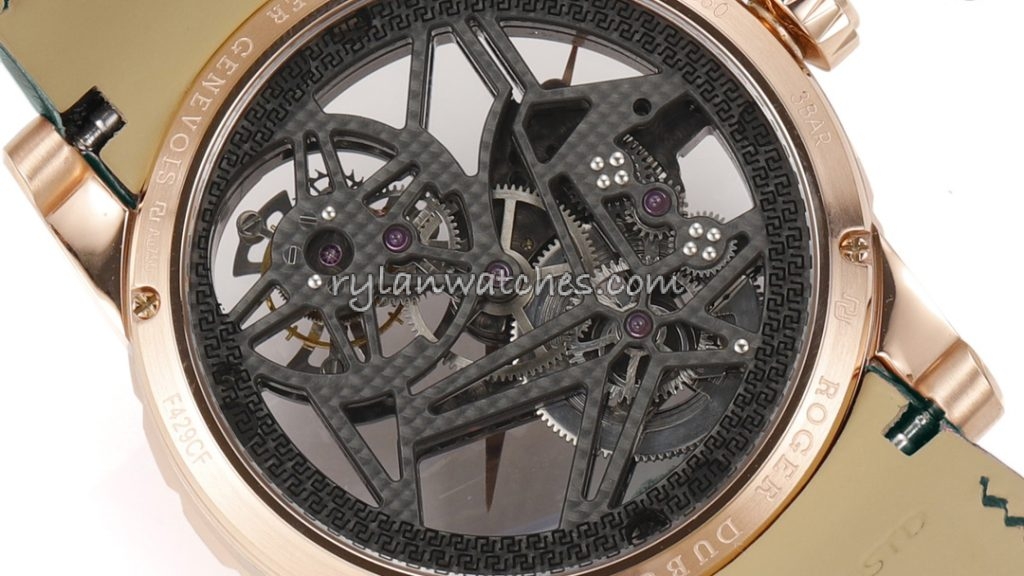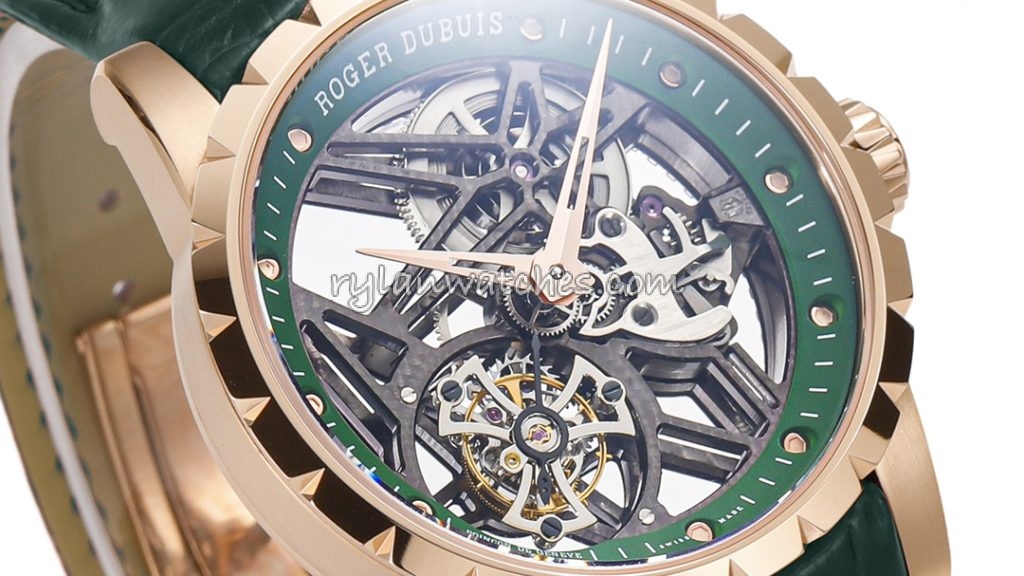The Rise of Super Clone Watches: Are They Legal?
The luxury watch industry has long been known for its precision, craftsmanship, and exclusivity. Brands like Rolex, Patek Philippe, and Audemars Piguet are synonymous with status, success, and ultimate luxury. However, with prices often reaching astronomical amounts, not everyone has the financial means to indulge in these iconic timepieces. Enter the world of super clone watches—highly accurate replicas of luxury watches, meticulously crafted to resemble the originals in both design and functionality. But with this rise in demand for super clones comes a critical question: Are super clone watches legal?
In this article, we will explore the legality of super clone watches, providing insights into intellectual property laws, trademark issues, consumer rights, and the ethical considerations surrounding these high-quality imitations. By the end of this guide, you will have a deeper understanding of the potential legal implications of buying, owning, or selling super clone watches and the broader context of this rapidly growing market. Additionally, we will link to some authoritative sources that will further deepen your understanding of this complex issue, such as WIPO (World Intellectual Property Organization).
What Are Super Clone Watches?
Super clone watches are the pinnacle of the replica watch industry. Unlike lower-quality replicas that typically use cheap materials and inferior manufacturing processes, super clones are designed to replicate the finest details of luxury watches with remarkable accuracy. A super clone watch is often crafted using premium materials, such as stainless steel, gold, ceramic, and sometimes even platinum, mimicking the authentic feel of luxury timepieces. These watches are made to closely resemble the originals, often indistinguishable to the untrained eye.
The movement inside a super clone watch is often a highly accurate mechanical or automatic movement, sometimes sourced from Swiss manufacturers or expertly engineered to replicate the performance of high-end models. While these watches do not bear the official brand’s logo or name, they are designed to replicate the luxury watch’s overall appearance, including the shape, style, dial design, and materials. For many buyers, super clones offer a way to own a watch with the same aesthetic and functional qualities as a luxury piece, without the hefty price tag. If you are interested in understanding more about the craftsmanship behind luxury watchmaking, you can read articles on A Blog to Watch.

Super Clone Watches vs. Replica Watches: What’s the Difference?
Before delving into the legalities of super clone watches, it’s essential to distinguish them from regular replica watches, as these two categories, while similar, carry different legal implications. The term “replica” is often used as a catch-all for imitation watches, but it encompasses a broad range of quality levels. While both super clones and standard replicas aim to replicate the look and feel of luxury watches, they do so in very different ways.
Replica Watches
Replica watches are generally low-quality copies that aim to mimic the overall look of luxury watches but often fail to replicate the craftsmanship, movement, or functionality of the originals. These watches are typically mass-produced, and manufacturers tend to use inferior materials, resulting in watches that are easily distinguishable from the real thing. Common features of replica watches include cheap metals, plastic parts, and poorly designed movements that can break down quickly. Many replica watches also carry counterfeit logos and brand names, which are direct violations of trademark law and make these products illegal in most jurisdictions. If you’re curious about the legal aspect of counterfeit goods, you can explore Intellectual Property Office for further insights.
Super Clone Watches
Super clone watches, on the other hand, are high-end replicas that aim to replicate not just the outward appearance of luxury watches but also the internal workings, often using high-quality materials and movements sourced from reputable manufacturers. The key distinction between super clones and regular replicas is that super clones are designed to be indistinguishable from the originals in both look and feel, and they generally do not feature counterfeit logos or names. Instead of trying to pass off the watches as genuine articles, super clones are marketed as high-quality alternatives, making them less likely to violate trademark laws directly.
Because of their high-quality craftsmanship and attention to detail, super clone watches often attract enthusiasts who want to experience the luxury watch experience without paying the exorbitant prices associated with authentic pieces. These watches are not just about appearance; they often function in the same way as the original, providing a similar level of performance, precision, and durability. For a better understanding of how luxury watch brands protect their designs and patents, you can refer to Patek Philippe’s intellectual property page.
The Legal Landscape: Are Super Clone Watches Legal?
Now that we have a better understanding of what super clone watches are, let’s dive into the legal issues that surround them. The legality of super clone watches is largely determined by intellectual property laws, particularly those related to trademarks, copyrights, and design patents. Luxury watchmakers such as Rolex, Patek Philippe, and Omega invest significant resources into creating their brand identities and protecting their designs through trademarks and patents. However, since super clones do not carry the brand logos or names, they avoid direct trademark infringement. Let’s break down the key legal concerns surrounding super clone watches.
Trademark Infringement: A Core Concern
The primary legal concern when it comes to luxury watch replicas, including super clones, is trademark infringement. A trademark is a legally registered symbol, name, or design that identifies the source of a product. Luxury watch brands heavily protect their trademarks to prevent unauthorized use of their names and logos. By doing so, they can ensure that their brand identity remains distinct and that customers know they are purchasing authentic, high-quality products.
Super clones typically avoid trademark infringement by not using the official brand name, logo, or other distinctive brand identifiers. While the design and craftsmanship of a super clone may closely resemble that of the original, the absence of the brand’s trademarked symbols means that the watch is not technically a counterfeit.
However, the legal grey area arises when super clones are marketed in a way that could mislead consumers into believing they are purchasing an authentic luxury timepiece. If a super clone is sold with the intent to deceive or mislead buyers, it could still fall under the category of false advertising and consumer fraud, potentially leading to legal action. For more information on trademark law, check out United States Patent and Trademark Office.
Copyrights and Design Patents: Protecting Unique Designs
In addition to trademarks, luxury watch brands protect their unique designs through copyright and design patents. Design patents safeguard the ornamental design of a functional product, while copyrights protect the artistic elements of a design. Many luxury watches have patented or copyrighted designs, which means that reproducing these designs without authorization is considered an infringement of intellectual property law.
Super clone manufacturers often try to avoid direct copyright or patent infringement by making subtle changes to the design of the watch. For example, they might alter the shape of the case, modify the dial layout, or slightly change the arrangement of the hands. While these changes may seem minor, they help super clone manufacturers stay within the bounds of the law while still producing watches that are strikingly similar to the originals. However, it is important to note that even slight modifications can lead to legal challenges if they are deemed to be too close to the original design. For more information on design patents, visit WIPO’s Designs page.

Is It Legal to Buy and Own Super Clone Watches?
In general, owning a super clone watch is not illegal, as long as the watch does not infringe upon trademark or patent laws. The legality of buying and owning super clone watches can vary depending on where you live, as different countries have different laws surrounding intellectual property and counterfeit goods. For example, in the United States, owning a super clone watch is typically not illegal unless it is sold with the intention to deceive consumers about its authenticity.
It is important to note that while owning a super clone may not be illegal, selling these watches can be problematic, especially if the watches are marketed with deceptive intent. For instance, selling a super clone watch as an authentic luxury timepiece could be considered fraud or false advertising, both of which are illegal in many jurisdictions. If you are interested in how counterfeit goods are legally defined, you can review Federal Trade Commission (FTC) guidelines.
Country-Specific Laws
In some countries, intellectual property laws are more stringent, and super clones may be treated as counterfeits even if they do not carry the brand’s logo. For example, in the European Union, customs authorities have the right to seize goods that closely resemble trademarked products, even if they do not carry counterfeit logos. This is because the design and appearance of luxury watches are often protected by design patents or copyrights, and reproducing these designs without permission can still be considered an infringement.
Importation Risks
Another legal risk associated with super clone watches is the potential for customs seizures. Even if it is legal to own a super clone in your country, importing these watches could lead to complications at customs. Some countries, such as the United States and the United Kingdom, have strict customs regulations that prohibit the importation of counterfeit goods, which includes items that closely resemble trademarked products. Even if the super clone does not carry the brand’s logo, it may still be seized if it is deemed to violate intellectual property laws.
Ethical Considerations: Should You Buy a Super Clone Watch?
While the legality of super clone watches may seem clear, the ethical considerations surrounding their purchase and ownership are more nuanced. Many luxury watch brands argue that super clones undermine their brand integrity and contribute to the erosion of their intellectual property. They view super clones as a form of theft, as the design and craftsmanship of their watches are being copied without compensation. For these brands, super clones represent unfair competition, as they allow individuals to enjoy the look and feel of a luxury watch without paying for the original.
On the other hand, supporters of super clone watches argue that they provide an affordable option for those who cannot afford the high prices associated with genuine luxury timepieces. They believe that super clones allow people to experience the beauty and functionality of high-end watches without the hefty cost, and they view the purchase of these watches as a harmless alternative to owning a genuine piece. From this perspective, super clones democratize access to luxury, allowing a broader audience to appreciate the craftsmanship and design that go into creating these iconic timepieces. To explore luxury watches from various brands, visit our collection of Audemars Piguet Replica Watches.
Conclusion: The Legality and Ethics of Super Clone Watches
In conclusion, super clone watches occupy a legal grey area. While they do not infringe directly on trademark laws and often avoid copyright or patent violations through design modifications, the sale and marketing of super clone watches can still lead to legal complications. Owning a super clone watch is generally not illegal, but buyers should be cautious of potential risks when importing or selling these watches. As with any product, it is essential to be informed about the laws in your country and to ensure that you are not engaging in deceptive practices when purchasing or reselling super clones.
As the market for super clone watches continues to grow, so too will the legal and ethical discussions surrounding them. Whether you decide to buy a super clone or an authentic luxury watch ultimately depends on your personal values, budget, and perspective on intellectual property. Understanding the legal landscape and the ethical implications of your choices will help you make an informed decision. For further guidance on intellectual property issues, visit WIPO.
